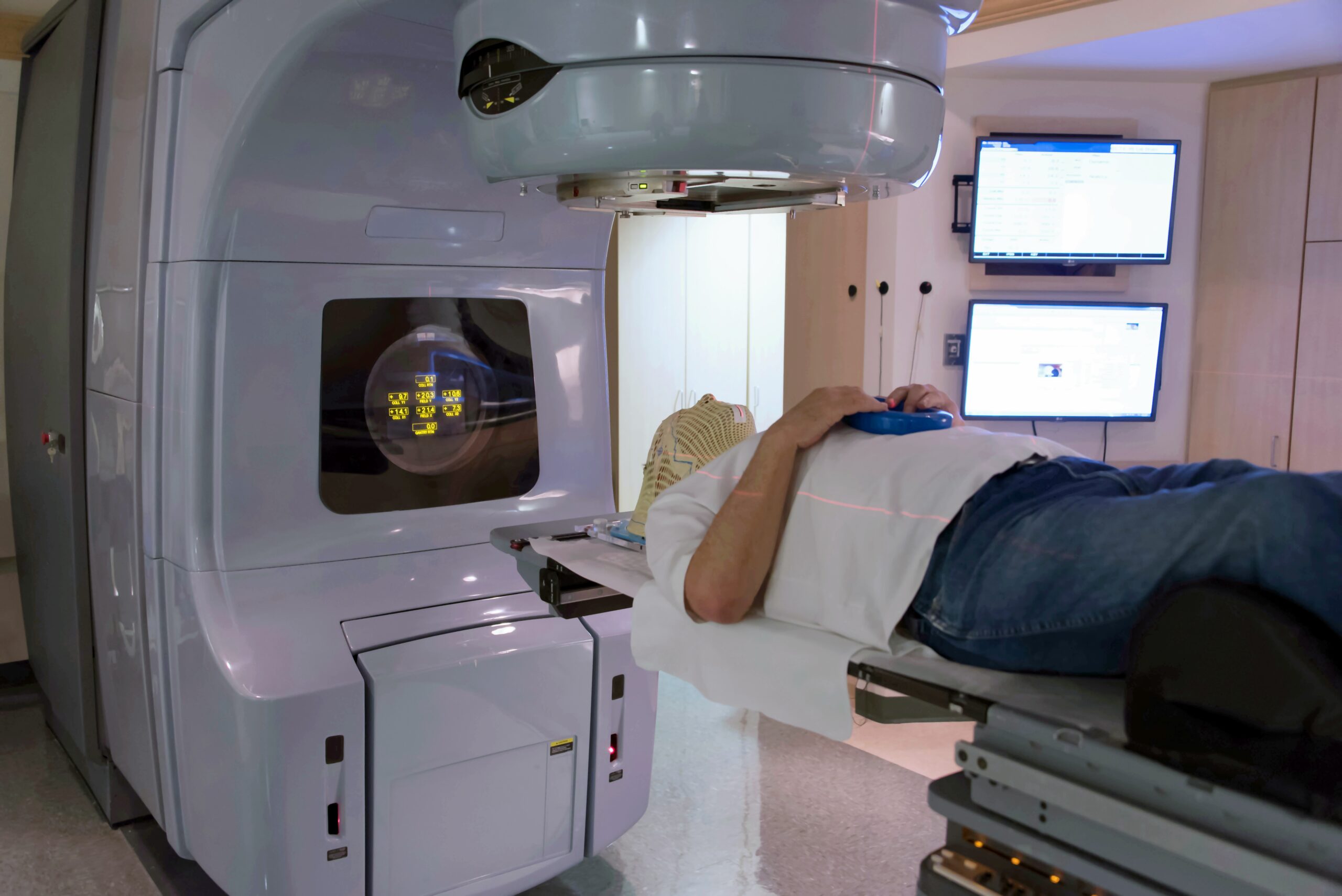
Organizing treatment for cancer patients is complex. Before an appointment can be scheduled, there are more than 20 variables to consider. Montreal-based Gray Oncology Solutions, founded by two McGill University graduates, aims to simplify this process. Its software, GrayOS, relies on artificial intelligence to solve the puzzle.
“Let’s imagine each variable as a block in the game Tetris,” says CEO André Diamant, to illustrate his point. “We use the organizational and predictive functions of AI to produce the best possible layout — in other words, the best possible plan for the patient’s oncology care pathway.”
A flood of data to master

Appointment-scheduling software is abundant in the health-care sector. However, according to Diamant, GrayOS is unique in having all the functionality needed to manage the flood of data associated with a cancer patient’s care pathway.
Cancer treatment involves many different hospital units, such as radiation oncology, medical oncology and surgery, which are often managed separately. Many factors must be taken into account when scheduling appointments: the availability of the patient and that of the doctor or technical staff, the availability of the room, the duration of the procedure, the type of technology, and so on.
This difficulty in assigning appointments creates gaps in the hospital’s schedule. The sheer volume of data to be processed adds to staff workloads. For some patients, uncertainty around their care pathway can become so anxiety-provoking that it hinders their healing process and delays certain treatments.
Gray Oncology Solutions has partnered with the cancer centres of several health care institutions, including the Centre hospitalier de l’Université de Montréal (CHUM), the Jewish General Hospital and the Ottawa Hospital. The results have been encouraging: a 5-to-10-per-cent increase in the number of patients seen, a 17-per-cent reduction in wait times, and an 80-per-cent reduction in administrative workload. During the second wave of COVID-19, despite the chaos that reigned in hospitals, the CHUM’s cancer centre was able to provide thousands of additional appointments thanks to GrayOS.
Doctorates in medical physics from McGill University
André Diamant and Marc-André Renaud, the technical director, founded Gray Oncology Solutions in 2019. The company traces its roots to both McGill and Polytechnique. The founders completed their PhDs in medical physics at McGill under the supervision of Jan Seuntjens, now at the University of Toronto and the Princess Margaret Cancer Centre. Renaud then did a post-doctorate at Polytechnique with Louis-Martin Rousseau and his close collaborator, Nadia Lahrichi, two specialists in health-care logistics. The contributions of the three renowned experts were crucial to the company’s genesis, and Diamant is effusive in his praise for them.
“They are our ‘founding advisors’. Even today, all three devote time to Gray Oncology Solutions each week. They are at the heart of our business, and the value they bring is inestimable.”
Unwavering support from the Dobson Centre
The company has also benefited from its association with McGill University’s Dobson Centre for Entrepreneurship. Gray Oncology Solutions made its name at the Dobson Cup 2020, a competition for startups. Although Gray Oncology Solutions didn’t win the cup, its strong potential won over the Centre’s management, which has provided the team with coaching and financial support over the past few years. Diamant was able to take part in such major trade shows as London Tech Week, ViVATech in Paris and the Midtech Conference in Boston, where he met potential customers and investors.
“At every stage of the company’s growth, we have always felt the unwavering support of the Dobson Centre,” he says gratefully, “and I have no doubt that this support will continue for a long time to come. Thanks to the Centre’s presence in the ecosystem and its guidance, we have been able, both here and abroad, to open many doors that would otherwise have remained locked.”
Toward a Waze for health care
What does the future hold for Gray Oncology Solutions? In a nutshell: customization and diversification.
First and foremost, the company wants to take care pathways out of the ruts imposed by bureaucratic structures, which fail to take into account the needs of each individual. Gray Oncology Solutions wants to provide patients with “a sort of Waze of health care,” explains Diamant, using a familiar concept: a system capable of defining a customized pathway, anticipating situations, adapting the pathway in real time and running simulations to identify the most likely or preferable scenarios. Each patient would have access to this information via a mobile application. “I can hardly imagine how painful and stressful the wait between treatments can be when you’re fighting cancer,” he adds. “I can understand why patients feel abandoned between medical appointments. However, things are moving, and with the portal we’re building, they’ll one day be able to track medical procedures and know which professional is working on which part of their case, a bit like tracking the progress of a parcel.”
The company is also aiming to market versions of its software adapted to other, non-oncology hospital units.
